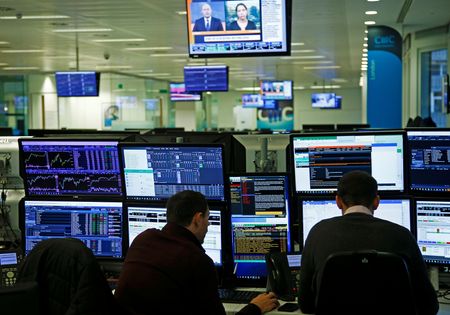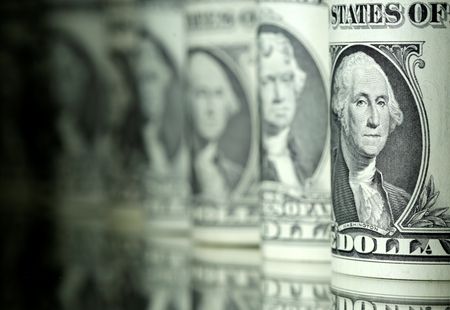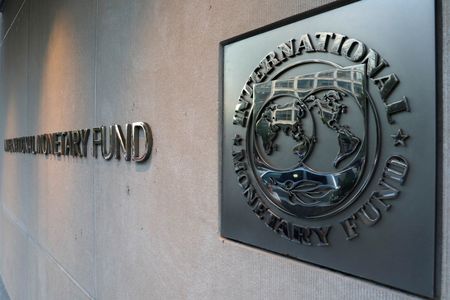By Iain Withers and Stella Qiu
LONDON/SYDNEY (Reuters) -Tumbling bank shares pulled global stocks lower on Friday, while gold hit a fresh peak, as signs of credit stress at U.S. regional lenders unnerved investors and drove them into safe-haven assets.
European banks fell 2.8% in early trade – dragging the wider stock index down 1.4% – with the likes of Deutsche Bank and Barclays down more than 6%, following losses across Asian financial stocks.
S&P 500 futures and Nasdaq futures were down 0.8-0.9% ahead of more earnings from U.S. regional banks later in the day. Many stock markets have hit record highs in recent weeks, but some investors have become wary that corners of the market could be in a bubble.
DOLLAR UNDER PRESSURE, GOLD AND TREASURIES CLIMB
Overnight, U.S. regional lender Zions sank 13% after disclosing it would take a $50 million loss in the third quarter on two loans from its California division. Western Alliance’s stock slumped 11% after it initiated a lawsuit alleging fraud by an investment firm, Cantor Group V, LLC. Cantor’s attorneys denied the allegations.
The developments pummelled U.S. banking stocks and weighed on the U.S. dollar to the benefit of the yen and Swiss franc.
“While the recent issues of the two lenders seems well contained, where there is smoke there is often fire and the remedy of the 2023 crisis has created a tinderbox for another banking flare-up,” said IG analyst Tony Sycamore, referring to a series of bank failures that year which prompted the U.S. Federal Reserve to take steps to stabilise the financial system.
Safe-haven Treasuries rallied further, with two-year yields down to a fresh three-year low of 3.376% earlier in the session as investors priced in at least two more quarter-point rate cuts from the Fed this year.
The flight to safety saw gold hit a record of $4,378.69 per ounce. Bullion is set for a weekly gain of 7.8%, and earlier in the session had temporarily been on track for its biggest gain since September 2008 when the collapse of Lehman Brothers fuelled the global financial crisis.
“It wouldn’t surprise me, frankly, if gold hits $5,000 before it actually stops for air …. Equally, it could fall 20% in the next month. So we’re more holders than buyers at current levels,” said Eren Osman, managing director of wealth management at Arbuthnot Latham.
Sentiment in equities has also taken a hit due to rising trade tensions between China and the United States. China on Thursday accused the U.S. of stoking panic over its rare earth controls, rejecting a White House call to roll back the curbs.
MSCI’s broadest index of Asia-Pacific shares outside Japan dropped 1.3%, taking the week into negative territory.
The credit worries and rate cut bets have weighed on the U.S. dollar, which is off 0.6% this week. [FRX/]
The yen and the Swiss franc have gained most, with both up around 1% this week.
Bank of Japan Governor Kazuo Ueda said that the central bank would scrutinise various data in deciding whether or not to raise interest rates this month.
Oil prices extended losses, after falling 1% overnight as U.S. President Donald Trump said he and Russian President Vladimir Putin had agreed to meet in Hungary soon to discuss ending the war in Ukraine.
U.S. crude fell 0.6% to $57.11 a barrel, while Brent was also off 0.7% to $60.67.
(Editing by Peter Graff)












